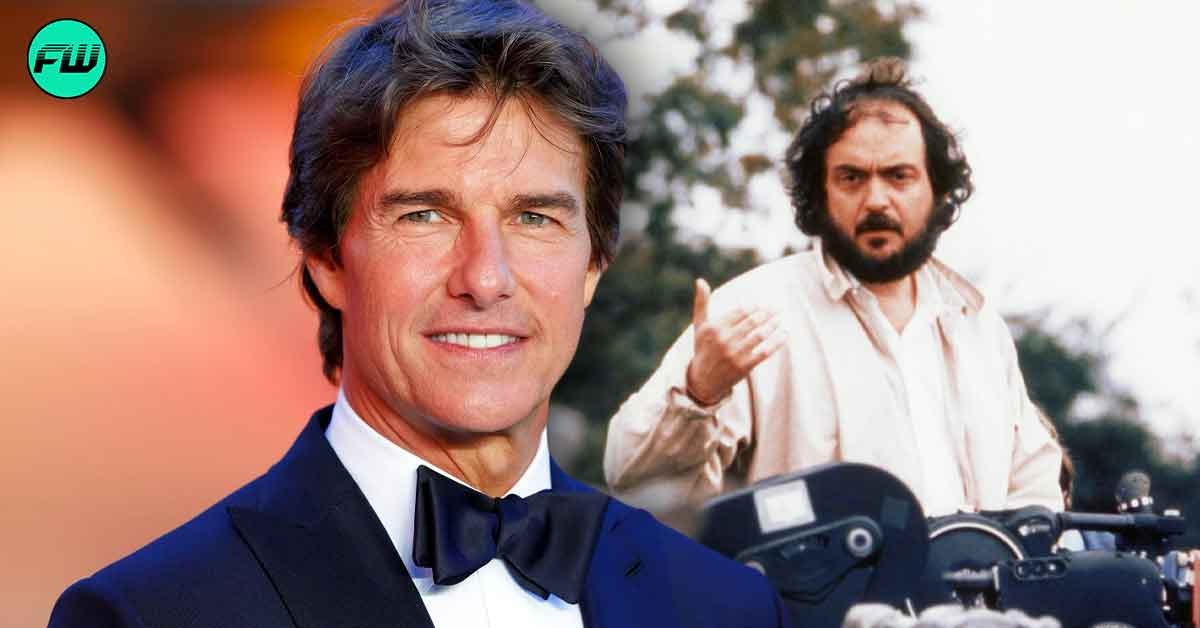
Being one of the biggest stars of the modern era comes with its own unique set of perks, which, in Tom Cruise‘s case, allowed him to seek out the most notable auteurs in the industry. He used to balance his A-list status with meaty dramatic parts in smaller-scale films from renowned creative minds, but that hasn’t been the case for a long time.
Having made it to the top of the Hollywood ladder in 1986 when Top Gun propelled him towards the upper echelons of the A-list, Cruise went out of his way to learn from the best. Fast forward 20 years, and the list of directors he’d worked with was nothing short of astonishing. His voracious appetite for the craft of cinema ensured that he’d soaked up as much knowledge and know-how as possible along the way.
Martin Scorsese, Barry Levinson, Oliver Stone, Rob Reiner, Sydney Pollack, Brian De Palma, Cameron Crowe, Stanley Kubrick, John Woo, Paul Thomas Anderson, Steven Spielberg, and Michael Mann all directed Cruise during that period. However, any inclinations he had to work on auteur-driven projects have largely disappeared.
To illuminate that point, consider the last 20 years. Cruise has appeared in 18 features during that time, but his list of collaborators has dwindled in stature, no disrespect intended. The closest filmmaker to an auteur he’s worked with since then is probably Doug Liman, and even then, their partnerships came in the blockbuster sci-fi Edge of Tomorrow and broad true-life crime thriller American Made.
Of the 13 movies he’s made since first crossing paths with Christopher McQuarrie on Bryan Singer’s Valkyrie, the former has gone on to be credited as a writer, director, or producer on ten of them. They’ve clearly got a great relationship both on-screen and off, but there’s no sign of any risk-taking, subversion, or desire to make a concerted effort to escape from his action hero wheelhouse to any great extent.
In what’s not a coincidence, Cruise’s infamous interview with Oprah Winfrey came right before the post-auteur period, which is very telling. It did huge damage to his reputation and reduced him to a laughing stock in the eyes of many. Ever since then, he’s largely played it safe, kept his private life more private than ever, barely even mentioned Scientology in public, and kept his eyes firmly on the projects that have the potential to earn the most money.
His split from both long-time home Paramount and producing partner Paula Wagner was another major factor, with the star’s 14-year association with the studio coming in 2006 when Sumner Redstone – boss of parent company Viacom – opted against renewing his contract. They claimed that “his recent conduct has not been acceptable,” a reference to both the Oprah fiasco and his controversial comments on Brooke Shields.

Meanwhile, Cruise/Wagner Productions was dissolved in 2008 after first being founded in 1992, with the duo producing 18 movies together, nine of which starred Cruise in the lead role. There was also the bungled resurrection of United Artists, with the end of their Paramount partnership spurring Cruise and Wagner to take a 30% stake in the company, which gave them production and developmental oversight.
Wagner left the same month the company she co-founded with the actor was folded to strike out on her own. After the disappointing response to both Lions for Lambs and Valkyrie, the entire experiment was quietly abandoned altogether. Since then, it’s been nothing but effects-heavy spectaculars and the occasional guest spot from Cruise.

The encouraging news is that his first-look deal with Warner Bros has already seen him announced as the star of five-time Academy Award-winning The Revenant director Alejandro González Iñárritu’s next feature, with rumours also linking him to Quentin Tarantino’s The Movie Critic after he was previously considered for Brad Pitt’s Cliff Booth role in Once Upon a Time in Hollywood. A combination of Oprah, Paramount, and Wagner scuttling his bulletproof armour saw Cruise retreat to his comfort zone, but the auteur days might finally be back at long last.





